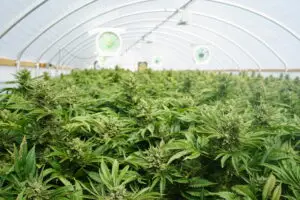
Marijuana is the most common drug involved in Driving Under the Influence (DUI) arrests. Now that the drug is legal for medicinal and adult recreational use in California, some users do not think it is a “big deal” to drive while under its influence. However, the State of California does not agree with that point of view and works hard to keep drivers affected by marijuana use off the roads and penalize those who drive while impaired.
If you are arrested on suspicion of marijuana DUI and administered a blood or urine test showing any level of marijuana in your system, those test results will be used as evidence of your guilt. However, your arrest is not the end of the story. A Los Angeles DUI Attorney will give you the legal representation you need to have your charges and penalties reduced or dismissed completely.
How Long After Smoking Week Can You Get a DUI?
The chemical component of marijuana that leads to a high is THC. For habitual marijuana users, THC is almost always present in their systems, even if they are not experiencing a current high. While this constant THC presence does produce evidence of guilt in blood and urine tests, a skilled Los Angeles DUI Attorney can use it as part of your defense, claiming your regular use caused the presence of THC, not smoking you engaged in right before or during your DUI arrest.
If you are an occasional user, you need to know that THC can stay in your system for up to 30 days though the initial high only lasts a few hours. Its effects are most powerful in the first 30 minutes after use. In fact, the California Office of Traffic Safety (OTS) says people who drive immediately after using increase their risk of crashing by 25 to 35% as impairing effects take effect quickly.
Effects can be delayed if the drug is ingested instead of smoked.
What if I Only Smoke Marijuana for Medical Reasons?
Even if you use medical marijuana under a doctor’s care, you still feel the effects of THC and cannot legally drive while high. THC is a powerful psychoactive ingredient. While under its influence, you may experience the following:
- Euphoria
- Heightened sensory experiences
- Memory problems
- Impaired judgment as your brain processes information differently when under THC’s influence
- Slow reaction times
- Problems with balance and coordination and motor skills
Clearly, these effects damage your ability to drive safely, so even if you are using marijuana medicinally, a prescription does not get you off the hook legally.
When Law Enforcement May Suspect Drugged Driving
Law enforcement cannot pull you over for no reason. You cannot simply be pulled over and tested for THC without cause. An officer would have to witness behaviors demonstrating drugged or stoned driving to arrest you and order a test.
Behaviors likely to raise an officer’s suspicion include:
- Swerving or reckless driving
- Hitting another vehicle
- Ignoring traffic signals
- Driving too slowly or speeding
- Weaving in and out of lanes or between cars
Once the officer pulls you over, you may show other signs of impairment. For example, you or your vehicle may carry the odor of marijuana, and you may appear drowsy, speak slowly or with slurred words, or have red or watery eyes. These indicators can lead to an arrest.
What Happens After a Marijuana DUI Arrest?
Once arrested, you will undergo a blood or urine test, which will show whether there is THC in your system. It will not reveal when you last smoked. And whatever levels appear, there is no current “legal limit” threshold in California for THC as there is for blood alcohol concentration (BAC). Californians who drive with a BAC of .08% or higher are considered legally impaired, but THC levels alone are not considered conclusive evidence of impairment.
While you should secure high-quality representation for any arrest, since the criteria for marijuana intoxication are not based on hard percentages, it is especially important to partner with an experienced Los Angeles DUI attorney if you face marijuana DUI charges. Your lawyer will investigate to determine if law enforcement overstepped their authority or otherwise violated your rights and will consider all factors, such as habitual marijuana use, that may have contributed to your blood test results.






